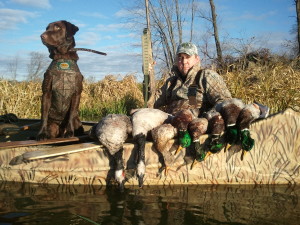In today’s hyper connected world, we can text, email and post updates about our personal lives to social media in real time. It’s easier to discuss ideas, politics and to stay in touch with friends and family.
Unfortunately, its also easier to become a victim of identity theft, hate speech, or condemnation for personal beliefs and actions. Sportsmen are no exception, and have faced widespread scrutiny (Change.org Users Seek to Ban Hunting Photos from Facebook) for posting images with harvested animals.
Follow these social media etiquette tips to avoid becoming the anti-hunters next target.
Ensure Your Privacy
Keep your privacy settings to ‘friends only’ on Facebook and other platforms so that only people you know and trust can view your content. Check these settings frequently as they sometimes change and different posts can have different parameters.
Correct Connections
Don’t accept invitations to connect with people you don’t actually know. Giving a stranger a glimpse into your personal life has ramifications.
Post Tasteful Photos
 While admittedly a subjective topic, photos that contain pools of blood and carcasses with guts hanging out can churn the stomachs of those not accustomed to or who don’t understand hunting. There’s no need to apologize for being a hunter, but there’s also no need to antagonize someone and to turn a non-hunter into an anti-hunter by posting graphic images.
While admittedly a subjective topic, photos that contain pools of blood and carcasses with guts hanging out can churn the stomachs of those not accustomed to or who don’t understand hunting. There’s no need to apologize for being a hunter, but there’s also no need to antagonize someone and to turn a non-hunter into an anti-hunter by posting graphic images.
Rules of Social Engagement
With every social media tempest surrounding hunters, you have a chance to educate the non-hunting public, a contingency who, through the ballot box, has the power to end hunting. with every social media post, you have the chance to advance hunting and to tell the story of how hunters fund conservation and manage game.
Change Minds, Not Hearts
You’ll never convince an animal-rights activist that hunting is necessary, so don’t concentrate on them. Focus instead on the non-hunters lurking and watching online exchanges. Frame the argument not in emotional terms, but in science, sustainability, funding, biology and conservation. It’s about influencing non-hunters and helping them understand our role in conservation and wildlife management throughout the ecosystem – from habitat to apex predator.
Focus on Facts
Exchanging emotional barbs with an anti-hunter does nothing to further your standing in the eyes of onlookers. Stick to the facts – hunters, anglers and trappers contribute to conservation more than any other single group. We fully fund 75 percent of all 50 state fish and game agencies, create billions of dollars in economic impact for communities and for conservation, as well as donate millions of dollars and man-hours of service for on-the-ground habitat enhancement.
Ask Questions
Don’t play defense. Sitting back and justifying why you hunt is a no-win battle. Use facts and remain levelheaded. Ask why a person objects to hunting or a specific method and put the ball back in their court. When they freely object to the death of an animal, point out that hunters effectively keep more animals from enduring the cruel deaths of starvation and disease. Let their own words shine a light of ignorance on their viewpoint while you appear rational to non-hunters.
(Article originally Published at: http://www.sportsmensalliance.org/news/social-media-etiquette-for-sportsmen/)